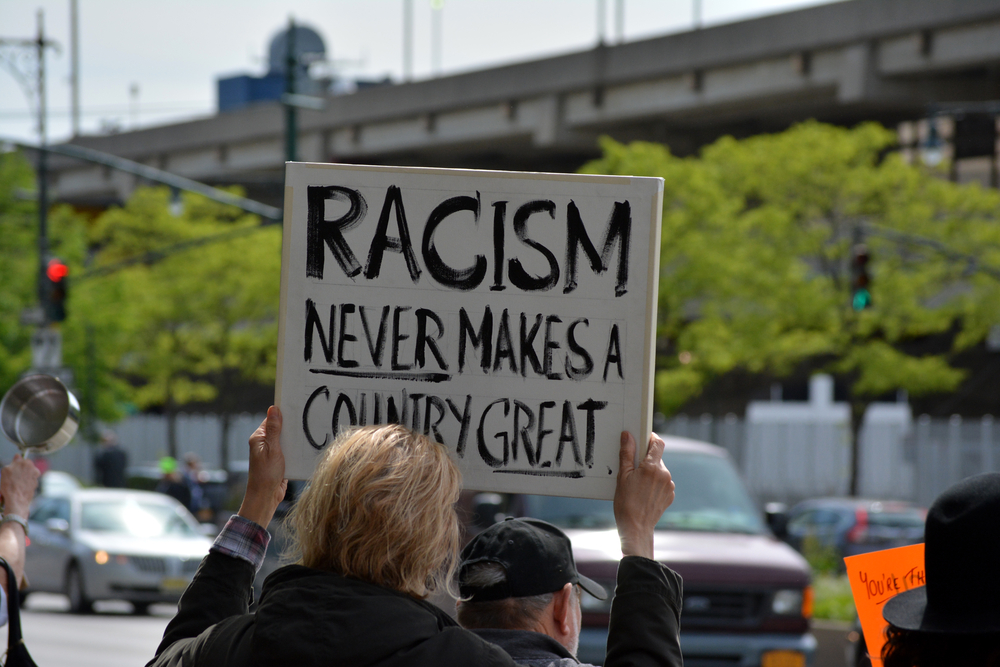Ever since Donald Trump’s election win, we’ve heard a lot about the voters who drove him to victory and the need to understand their “economic anxiety” rather than call out the racism, sexism, xenophobia, homophobia, or anything else that drove their vote. Now, The Atlantic has published a story with data suggesting we may have been right about those voters’ underlying reasoning after all, but don’t worry, racists; they’ve come up with a brand new code phrase to hide behind.
The Atlantic article refers to this phenomenon as “cultural anxiety,” identifying that it wasn’t really an uprising by the working class at all, but still reluctant to assign terms that might hurt the feelings of people who vote away others’ rights when they get mad that people think they don’t care about others’ rights. It’s just one set of data and analysis, but the Atlantic article says that those who had actual economic anxiety were more likely to vote for Clinton, even among the white voters who put Donald Trump in office.
So what was it that caused people to vote for Trump, exactly? “Besides partisan affiliation, it was cultural anxiety—feeling like a stranger in America, supporting the deportation of immigrants, and hesitating about educational investment—that best predicted support for Trump,” the article states. To be quite honest, I grew up in generally culturally homogenous “Trump country,” and I have no idea what people are talking about in terms of “feeling like a stranger in America”—except in how I feel about the person they voted into office and his ideals.
Sure, culture changes over time, and that’s scaaaary to the olds, but there’s no actual way to stop that, which makes it kind of ridiculous to vote based on taking your own, personal idea of what American culture should be and trying to freeze it in time. It’s also worth pointing out that there have been major issues in American culture—with those same problems of racism, sexism, homophobia, and more—throughout history, that haven’t suddenly gone away. It’s incredibly telling just who thinks American culture is fine as-is and shouldn’t change.
Seriously, nearly two-thirds of the “white working-class” voters represented in the data said that “American culture has gotten worse since the 1950s.” You know probably disagrees with that? Anyone who was lacking equal rights in the 1950s, which would be anyone who isn’t a straight white man. Over 50% of them think “discrimination against whites has become just as problematic as discrimination against minorities.” This is not “cultural anxiety.” This is being afraid of people who aren’t white and thinking they need to be kept in check. It is racism.
Since the election, we’ve also heard a lot about how calling Trump voters racist, sexist, and whatever else isn’t helpful and clearly didn’t win any of them over to our side before they cast their votes. We’ve heard terms like “economic anxiety” and “cultural anxiety” that soften things, but that doesn’t mean we shouldn’t continue to be clear about it. If Trump voters are more concerned about how hurt their feelings are by one of those labels than they are about whether or not they’re supporting the idea that the label exists to call out, there’s nothing we could’ve done to convince them anyway.
Calling someone “racist,” for example, isn’t a hand-wave to avoid an argument. It’s not just a meaningless label to be used for ending discussions and feeling like you have the more high ground, as critics of using it would have you believe. Like all words, it’s a way to express an idea, and anyone who’s upset at having it applied to them would be equally upset if someone explained what’s wrong with their thinking the longer way instead of just summing it up with one word.
It’s not all bad news, though. While The Atlantic found that the top two predicting factors for whether someone would vote for Trump were this racism/xenophobia/sexism hodgepodge and a dislike for immigration, only about one quarter of the voters in their data actually thought undocumented immigrants were a real problem. Of those voters, almost 90% of them voted for Trump, but they were still a smaller portion of the overall picture than it might seem—still too big a portion, but we’ll take what we can get at this point.
Unfortunately, you don’t get to pick and choose your president’s policies à la carte after an election, so they all voted for anti-immigrant policies, which hurts those people just as much as if it had been done intentionally.
(via Mike Drucker, image: Christopher Penler / Shutterstock.com)
Want more stories like this? Become a subscriber and support the site!
—The Mary Sue has a strict comment policy that forbids, but is not limited to, personal insults toward anyone, hate speech, and trolling.—









Published: May 9, 2017 05:31 pm